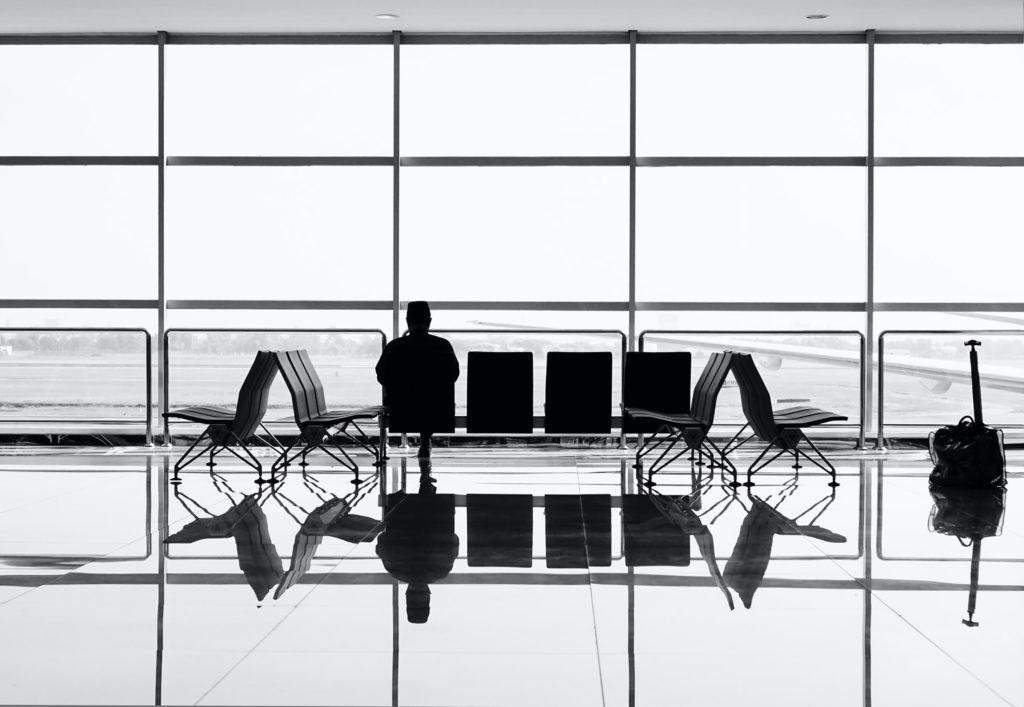In March, the Coronavirus Aid, Relief, and Economic Security (CARES) Act was passed by Congress and signed into law by President Trump. The act provided stimulus payments for many affected Americans and at the same time provided federal aid to US airlines. In return for this federal aid to these carriers, the airlines were barred from laying off employees involuntarily (or furloughed) through September. Now with just a few days to go before that deadline, it appears that the airlines will seek more federal aid. In fact, several US carriers’ executives have a meeting scheduled at White House today.
Breaking It Down:
Airlines Seeking $25B More in Federal Aid

US Airline Industry Having a Difficult Time, Seeking More Federal Aid
Multiple US carriers and labor unions representing many workers are seeking another $25 Billion is federal aid. At the White House meeting they will ask lawmakers and the Trump Administration for more help. They will argue that without this help, a potential 30,000 airline employees could face involuntary layoffs. The additional aid would be tied to jobs protection through March 2021.
According to CNBC, American Airlines CEO Doug Parker penned a letter to the Trump administration and Congress imploring:
The letter also carried the signatures of labor unions representing most of the airline’s workers.
United Airlines CEO Scott Kirby expressed the same concern in a interview with Politico. He firmly stated that the US airline industry needed further aid. Kirby believes it is safe to fly now, though he sees demand for air travel to be depressed in the short-term. For this reason, he was optimistic that the airlines would get the requested aid.
Delta Air Lines’ CEO Commits to No Further Layoffs
In contrast, Delta Air Lines’ CEO, Ed Bastian, recently announced in an internal memo that his airline committed to no more involuntary furloughs for flight attendants and ground-based front-line employees in U.S.
CEO Memo: No involuntary furloughs for flight attendants, ground-based frontline employees in U.S. https://t.co/AV914T1Z2B
— Delta News Hub (@DeltaNewsHub) September 15, 2020
Delta’s success is largely due to the strong response many employees had to an ‘enhanced early retirement’ and departure packages Delta offered as the pandemic further depressed the airline’s revenues. Those actions helped Delta reduce its cash burn and as Bastian cited “every one of those departures helped save Delta jobs.”
According to the memo, Delta saw 20 percent of its employees opting for voluntary retirement or voluntary furloughs.
American Airlines and United have unionized flight attendants as compared to Delta’s non-unionized employees. That, and a different culture, made a huge difference for Delta during this crisis.
Southwest Airlines has not taken any of the federal loan money made available to them. They announced recently they would not be taking the federal loan. However, Southwest’s CEO Gary Kelly, is attending the meeting at the White House.
The Upshot
For Americans travelers, we know that the rest of the global community has shunned them. Travel restrictions prohibit Americans from entering many borders due to the COVID-19 concerns. The numbers in the United States have not provided much assurance to other nations that America has a grip on the pandemic. As such, and as much of the country and the world, are waiting for a vaccine, the travel industry is still reeling from lack of demand. Even if demand comes back, the US State Department is warning Americans not to travel to Hong Kong or Mainland China. And that warning is not specifically addressing COVID-19.
RELATED POST: Reopenings: Europe Coronavirus Travel Restrictions by Country
Consequently, it is logical to hear that US airlines are seeking more federal aid from the government. The airlines have seen more than 120,000 employees retire early or take a voluntary leave of absence. It’s my sincerest hope that we can beat this COVID-19 pandemic and we can all soon return to the thing we love – travel. Then we can expect for the great airline employees to begin returning to their jobs as we return to the skies.
Should the US Government provide additional aid to an industry that, until recently, was pretty arrogant with foreign competitors and even its own loyal elite flyers?
Do you agree with the airlines seeking more federal aid? Do they need another $25 Billion?
The responses below are not provided or commissioned by the bank advertiser. Responses have not been reviewed, approved or otherwise endorsed by the bank advertiser. It is not the bank advertiser's responsibility to ensure all posts and/or questions are answered.
1 comment
No No and Hell NO !! The American taxpayers can not continue to fund these companies. At the end of the day there are going layoffs. some permanent, reduced flight schedules, reduced inventory of planes thats a fact and I dare anyone to refute that statement. It’s sad but this virus has brought the travel frenzy we embarked on years ago to halt. Frankly it has had a positive affect on many cities and their environment take Venice for example! I am not a environmentalist per se just saying it’s time. It is predicted that there will be at least a 10% “haircut” in total positions worldwide I see it in my company and others that I deal with.